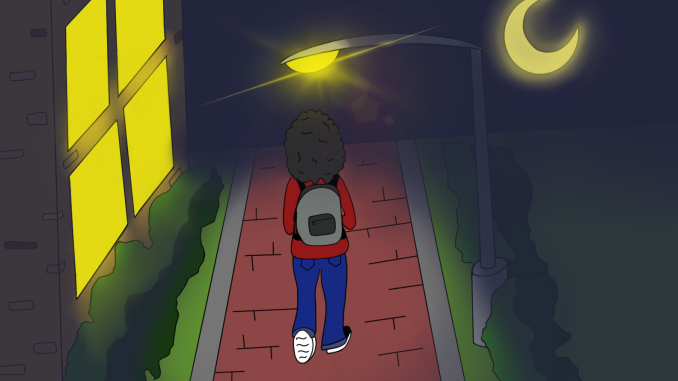
On Sept. 27, R. Kelly was found guilty on nine charges including sexual exploitation of a child, bribery, racketeering and sex trafficking involving five victims, according to National Public Radio. The majority of his victims were Black women.
One person can’t stop tragic abuses of power but an active, collective effort by students and Temple University can help protect Black women. Protections should include sensitivity training for police about how racism impacts Black women, safety plans that acknowlege statistics about Black women and sexual assault prevention efforts through education on consent and bystander intervention.
Kelly’s recent guilty verdict is a step forward in taking down powerful men who take advantage of young, impressionable people. However, 35 percent of Black women experience some kind of sexual violence over their lifetimes, according to the Maryland Coalition Against Sexual Abuse.
Many instances of sexual assault go unreported, as violence against Black women is often dismissed due to implicit bias, according to the National Organization for Women.
Marissa White, a senior business and management major and the secretary of the Black Student Union, was “shocked” after she learned about the public response towards Kelly’s behavior, especially after the release of “Surviving R. Kelly,” a 2019 documentary series detailing the sexual abuse allegations against the singer, she said.
“Our community did not take that situation seriously in the first place,” White said. “They were making jokes and memes and blaming it on the victims.”
Students must recognize that race affects the way violence is handled because Black women are not given the same attention or protection as other women, which puts them in increased danger.
The Black community is unfairly targeted by law enforcement due to implicit bias and direct racism, said Sonja Peterson-Lewis, an Africology and African African American Studies professor.
“There’s a pattern often of the community coming forth to protect its stars who are accused of wrong-doing,” Peterson-Lewis said.
Protecting Black men cannot come at the expense of Black women.
Adults view Black girls as more “adult-like” and less innocent than white girls, according to Georgetown Law’s Center on Poverty and Inequality.
False perception that Black women, and worse, Black girls are older and more mature than they actually are contributes to the violence they face, Peterson-Lewis said.
The adultification of Black girls also means there is a lack of empathy when they fall victim to attacks as their pain and trauma go unnoticed. That is why Temple must recognize that the intersectionality of being Black and a woman requires specialized attention and accomodations like offering support groups.
On-campus safety officials should learn sexual assault statistics about Black women and be trained to protect them from violence and recognize their own biases that could negatively impact Black female students.
Campus Safety Services has collaborated with the Office of Institutional Diversity, Equity, Advocacy and Leadership to become more culturally competent, said Donna Gray, manager of the Risk Reduction and Advocacy Services at Campus Safety Services.
“I know there are a lot of students who don’t avail themselves of those services because of who they are, and the fact that we all need the support of someone that’s like us to get us to that next level,” Gray added.
Gray walks students through the process of reporting an assault or dating violence and encourages getting to know each person’s strengths and weaknesses in order to figure out what kind of support they need most, Gray said.
Campus resources should be available specifically for Black female students because Black women encounter a unique kind of oppression, often referred to as misogynoir, that combines racism and sexism.
Currently, the only sexual assault resources available through Temple are for women in general. However, dealing with victims of sexual violence is not a one-size-fits-all ordeal, and cultural understanding is vital when addressing Black female victims.
The intersectionality of being Black and being a woman creates different experiences with sexual assault. Black women experience both racism and misogyny, which means one social issue can be addressed without addressing the other.
We must show Black women on campus they are loved and protected, and that is through education and action.


Be the first to comment